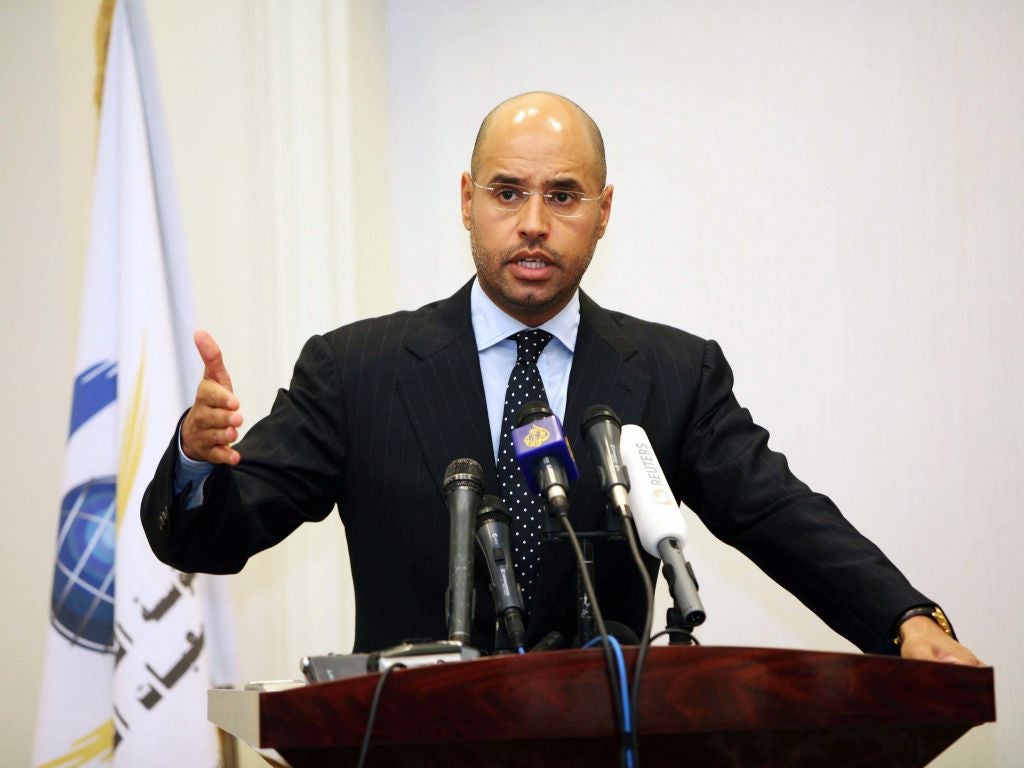Blair tried to get Oxford to admit Saif Gaddafi

Your support helps us to tell the story
From reproductive rights to climate change to Big Tech, The Independent is on the ground when the story is developing. Whether it's investigating the financials of Elon Musk's pro-Trump PAC or producing our latest documentary, 'The A Word', which shines a light on the American women fighting for reproductive rights, we know how important it is to parse out the facts from the messaging.
At such a critical moment in US history, we need reporters on the ground. Your donation allows us to keep sending journalists to speak to both sides of the story.
The Independent is trusted by Americans across the entire political spectrum. And unlike many other quality news outlets, we choose not to lock Americans out of our reporting and analysis with paywalls. We believe quality journalism should be available to everyone, paid for by those who can afford it.
Your support makes all the difference.The Tony Blair government tried to pressure Oxford University into accepting Saif Gaddafi as a student before he was later accepted at the London School of Economics.
A senior Foreign Office official asked Oxford to take in the son of Colonel Muammar Gaddafi in 2002, two years ahead of Mr Blair's "deal in the desert" with the Libyan dictator which formally re-opened diplomatic links between Britain and the regime.
The revelation comes in the long-awaited report by Lord Woolf into the LSE's Libyan connections – an investigation highly critical of the way the university accepted Saif Gaddafi, pictured, as a student and later a £1.5m donation from his charitable foundation. The LSE's connections with the Gaddafi regime led to it being dubbed "the Libyan School of Economics".
Lord Woolf's report reveals how the head of Oxford's department of International Development, Professor Valpy FitzGerald, took the call from high up in the Foreign Office in the spring of 2002. "He was contacted by a senior civil servant at the FCO 'to enquire if they could admit Saif to the MSc in Development economics, or failing that to the MPhil in Development Studies'," the report said.
"It was made clear," said Lord Woolf, "that the FCO would appreciate help in this case since Libya was opening up to the West again."
After the FCO had provided Professor FitzGerald with evidence of Saif's academic qualifications, Oxford rejected him and the matter was dropped.
Lord Woolf is highly critical of Professor David Held, who became Saif's academic adviser at the LSE and who asked for the donation from his charity, for failing to give enough information about where the money was coming from when the donation was presented to the LSE Council. "The true source of the money which the LSE agreed to accept has never been established," he said.
Join our commenting forum
Join thought-provoking conversations, follow other Independent readers and see their replies
Comments